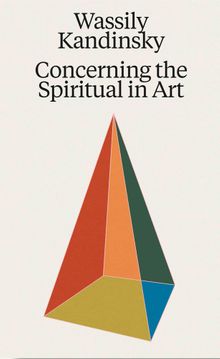| |||||||||||||||||||||||||
ARTIST MONOGRAPHS
|
|
STATUS: Forthcoming | 1/20/2026 This title is not yet published in the U.S. To pre-order or receive notice when the book is available, please email orders @ artbook.com |
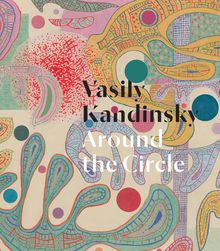 Vasily Kandinsky: Around the Circle
Vasily Kandinsky: Around the Circle
Published by Guggenheim Museum.
Edited with text by Tracey Bashkoff, Megan Fontanella. Text by Mark Antliff, Patricia Leighten, George E. Lewis.
One of the foremost artistic innovators of abstraction in the 20th century, Vasily Kandinsky sought to liberate painting from its ties to the natural world and promote the spiritual in art. This richly illustrated publication looks at Kandinsky anew, through a critical lens, reframing our understanding of this vital figure of European modernism, who was also a prolific aesthetic theorist and writer.
A series of thematic essays considers his engagement with avant-garde artistic communities including the Bauhaus, his relationship to improvisation and music, his travels in Europe and Russia, and the influences behind his self-declared anarchist mode of abstraction, among other topics. Tracing Kandinsky’s life and work through his years in Moscow, several cities in Germany, and Paris, the texts offer striking new insights into an artist whose creative production and style were intimately tied to a sense of place—and displacement—and evolved amid the political and social upheavals catalyzed by the Russian Revolution and World Wars I and II.
Kandinsky’s history is closely linked to that of the Guggenheim Museum. Solomon R. Guggenheim began collecting the artist’s work in 1929; a year later, they met at the Bauhaus, in Dessau. This book features more than half of the museum’s deep holdings of works by Kandinsky, presenting the full arc of his artistic development and career. Included are paintings in oil and oil with sand, reverse-glass paintings, as well as woodcuts, watercolors and drawings on paper. An illustrated chronicle of Kandinsky’s life and career, including selected exhibitions and publications, rounds out the volume.
PUBLISHER
Guggenheim Museum
BOOK FORMAT
Hardcover, 8.75 x 10 in. / 196 pgs / 125 color / 55 bw.
PUBLISHING STATUS
Pub Date 12/7/2021
Active
DISTRIBUTION
D.A.P. Exclusive
Catalog: FALL 2021 p. 11
PRODUCT DETAILS
ISBN 9780892075591 TRADE
List Price: $55.00 CAD $85.00 GBP £44.00
AVAILABILITY
In stock
in stock $55.00 Free Shipping UPS GROUND IN THE CONTINENTAL U.S. |
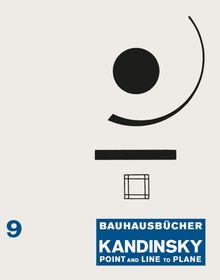 Wassily Kandinsky: Point and Line to Plane
Wassily Kandinsky: Point and Line to Plane
Bauhausbücher 9
Published by Lars Müller Publishers.
Edited by Walter Gropius, László Moholy-Nagy.
In 1911, Russian painter and theorist Wassily Kandinsky (1866–1944) published his seminal treatise Concerning the Spiritual in Art; over a decade later, in 1926, he debuted the text’s de facto sequel, Point and Line to Plane. In the latter volume, Kandinsky further develops the ideas that would come to inform not only the Bauhaus School but many other artistic movements: he theorizes that different constellations of point, line and surface have different emotional effects on the viewer. With the singular point as the most minimal graphic form, Kandinsky understands all painterly efforts as an extrapolation of forces and counterforces. This focus on contrasts and the effects of form can easily be seen as contemporary today.
As part of the publisher’s ongoing Bauhausbücher series, Lars Müller has released a facsimile edition of Kandinsky’s text translated into English with the original design and typography.
PUBLISHER
Lars Müller Publishers
BOOK FORMAT
Hardcover, 7 x 9 in. / 208 pgs / 1 color / 128 bw.
PUBLISHING STATUS
Pub Date 8/31/2021
Active
DISTRIBUTION
D.A.P. Exclusive
Catalog: FALL 2021 p. 54
PRODUCT DETAILS
ISBN 9783037786628 TRADE
List Price: $50.00 CAD $68.00
AVAILABILITY
In stock
in stock $50.00 Free Shipping UPS GROUND IN THE CONTINENTAL U.S. |
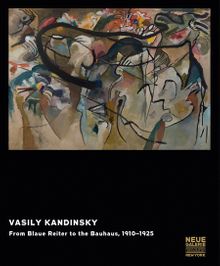 Vasily Kandinsky: From Blaue Reiter to the Bauhaus, 1910-1925
Vasily Kandinsky: From Blaue Reiter to the Bauhaus, 1910-1925
Published by Hatje Cantz.
Text by Vivian Endicott Barnett, Shulamith Behr, Reinhold Heller, Jill Lloyd, Peter Vergo, Rose-Carol Washton Long.
PUBLISHER
Hatje Cantz
BOOK FORMAT
Hardcover, 9.25 x 11.25 in. / 208 pgs / 192 color.
PUBLISHING STATUS
Pub Date 11/30/2013
Out of print
DISTRIBUTION
D.A.P. Exclusive
Catalog: SPRING 2014 p. 23
PRODUCT DETAILS
ISBN 9783775737340 TRADE
List Price: $60.00 CAD $70.00
AVAILABILITY
Not available
STATUS: Out of print | 00/00/00 For assistance locating a copy, please see our list of recommended out of print specialists |
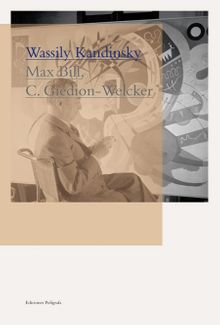 Vasily Kandinsky
Vasily Kandinsky
Published by Ediciones Polígrafa.
Text by Carola Giedion-Welcker, Max Bill.
PUBLISHER
Ediciones Polígrafa
BOOK FORMAT
Hardcover, 8 x 11 in. / 96 pgs / 74 color.
PUBLISHING STATUS
Pub Date 7/31/2009
Out of print
DISTRIBUTION
D.A.P. Exclusive
Catalog: FALL 2009 p. 99
PRODUCT DETAILS
ISBN 9788434312135 TRADE
List Price: $25.00 CAD $30.00
AVAILABILITY
Not available
STATUS: Out of print | 00/00/00 For assistance locating a copy, please see our list of recommended out of print specialists |
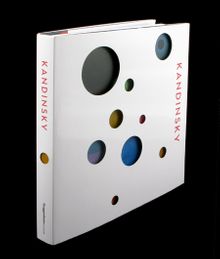 Kandinsky
Kandinsky
Published by Guggenheim Museum Publications.
Edited by Tracey Bashkoff. Text by Vivian Endicott Barnett, Christian Derouet, Matthias Haltemann, Annegret Hoberg, Gillian McMillan.
PUBLISHER
Guggenheim Museum Publications
BOOK FORMAT
Hardcover, 10 x 10 in. / 320 pgs / 260 color.
PUBLISHING STATUS
Pub Date 10/31/2009
Out of print
DISTRIBUTION
D.A.P. Exclusive
Catalog: FALL 2009 p. 176
PRODUCT DETAILS
ISBN 9780892073900 TRADE
List Price: $55.00 CAD $65.00
AVAILABILITY
Not available
STATUS: Out of print | 00/00/00 For assistance locating a copy, please see our list of recommended out of print specialists |
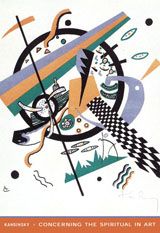 Concerning the Spiritual in Art
Concerning the Spiritual in Art
Published by MFA Publications, Museum of Fine Arts, Boston.
By Wassily Kandinsky. Translation by Michael T.H. Sadler with a new introduction by Adrian Glew.
PUBLISHER
MFA Publications, Museum of Fine Arts, Boston
BOOK FORMAT
Clothbound, 6.25 x 8.5 in. / 192 pgs / 18 bw.
PUBLISHING STATUS
Pub Date 7/1/2006
Out of print
DISTRIBUTION
D.A.P. Exclusive
Catalog: SPRING 2006 p. 17
PRODUCT DETAILS
ISBN 9780878467020 TRADE
List Price: $27.50 CAD $37.50 GBP £24.50
AVAILABILITY
Not available
STATUS: Out of print | 00/00/00 For assistance locating a copy, please see our list of recommended out of print specialists |
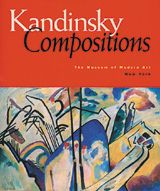 Kandinsky Compositions
Kandinsky Compositions
Published by The Museum of Modern Art, New York.
Essay by Magdalena Dabrowski. Foreword by Richard E. Oldenburg.
PUBLISHER
The Museum of Modern Art, New York
BOOK FORMAT
Hardcover, 9.25 x 10.75 in. / 128 pgs / 37 color / 75 bw.
PUBLISHING STATUS
Pub Date 11/2/2002
Out of print
DISTRIBUTION
D.A.P. Exclusive
Catalog: FALL 2002
PRODUCT DETAILS
ISBN 9780870704055 TRADE
List Price: $40.00 CAD $50.00
AVAILABILITY
Not available
STATUS: Out of print | 4/1/2008 For assistance locating a copy, please see our list of recommended out of print specialists |
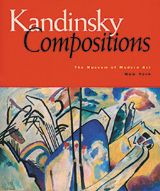 Kandinsky Compositions
Kandinsky Compositions
Published by The Museum of Modern Art, New York.
Essay by Magdalena Dabrowski. Foreword by Richard E. Oldenburg.
PUBLISHER
The Museum of Modern Art, New York
BOOK FORMAT
Paperback, 9 x 10.75 in. / 128 pgs / 37 color 75 bw
PUBLISHING STATUS
Pub Date 7/2/2002
Out of print
DISTRIBUTION
D.A.P. Exclusive
Catalog: FALL 2002
PRODUCT DETAILS
ISBN 9780870704062 TRADE
List Price: $22.50 CAD $25.00
AVAILABILITY
Not available
STATUS: Out of print | 12/19/2005 For assistance locating a copy, please see our list of recommended out of print specialists |
